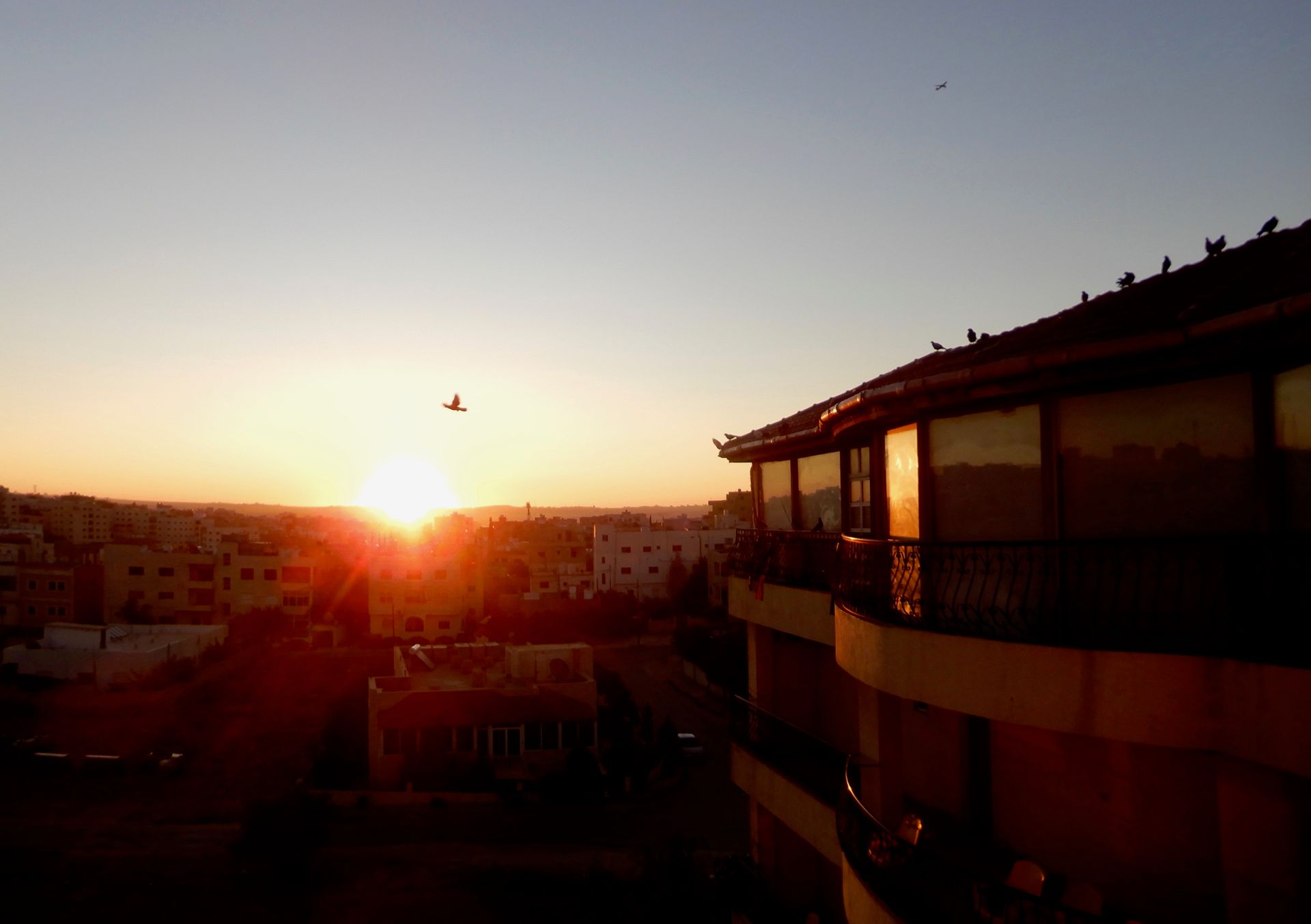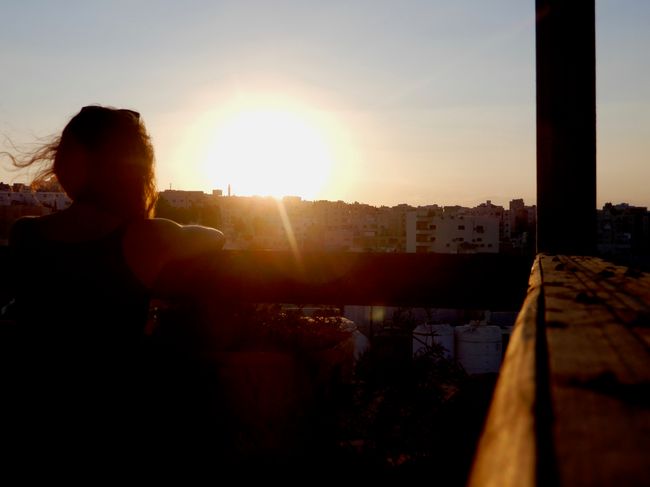On the go in the Golan Heights
Argitaratu: 21.02.2020
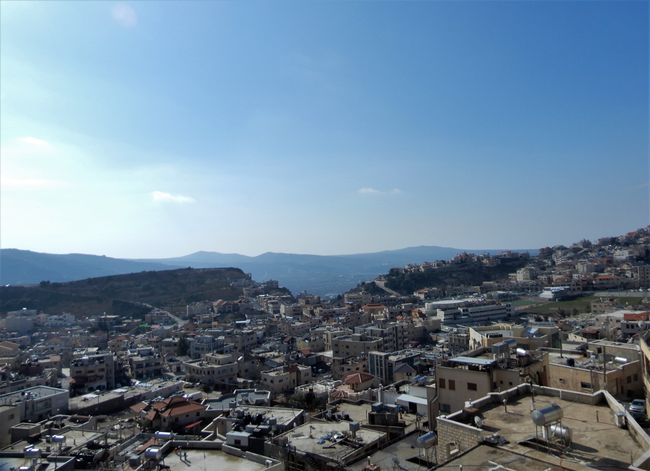
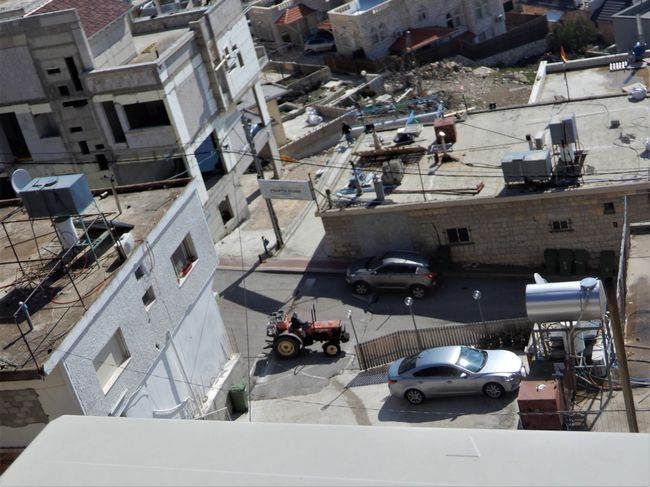
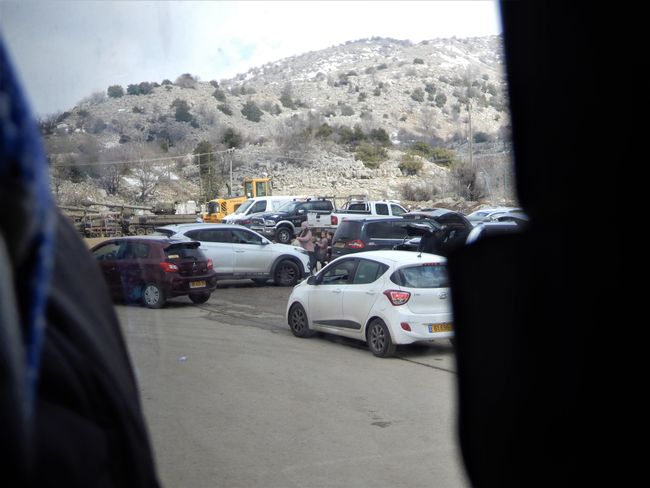
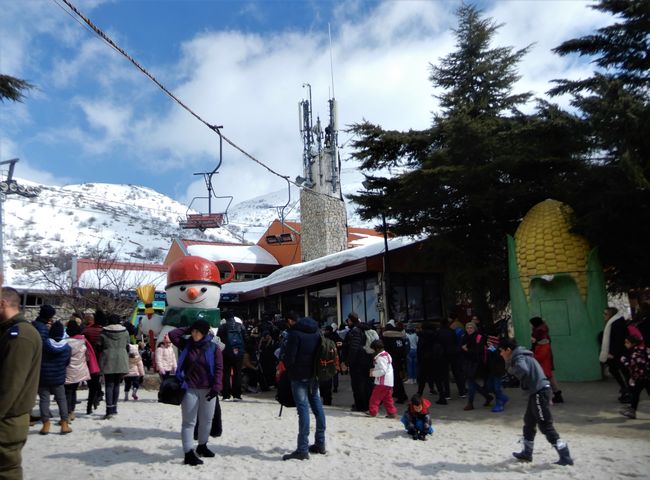
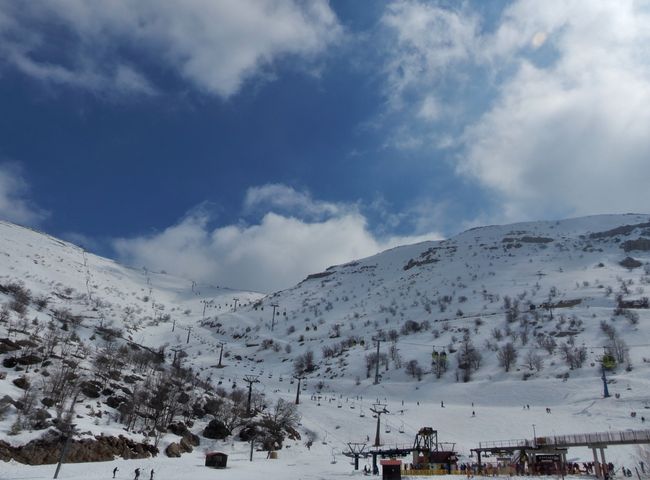
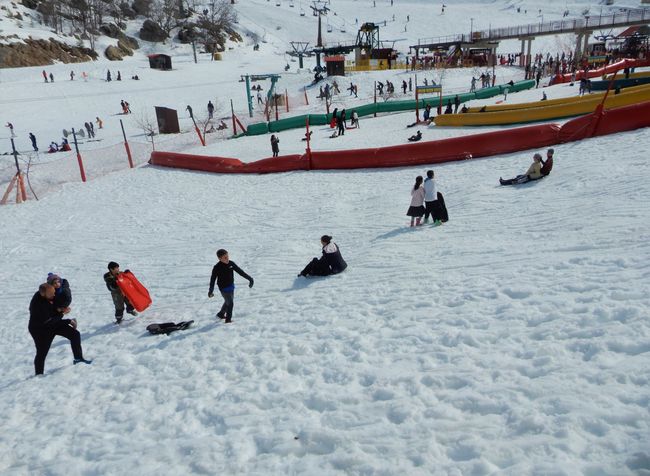
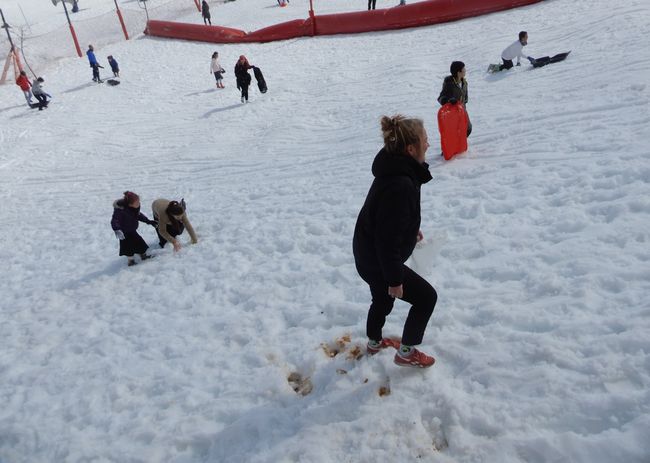
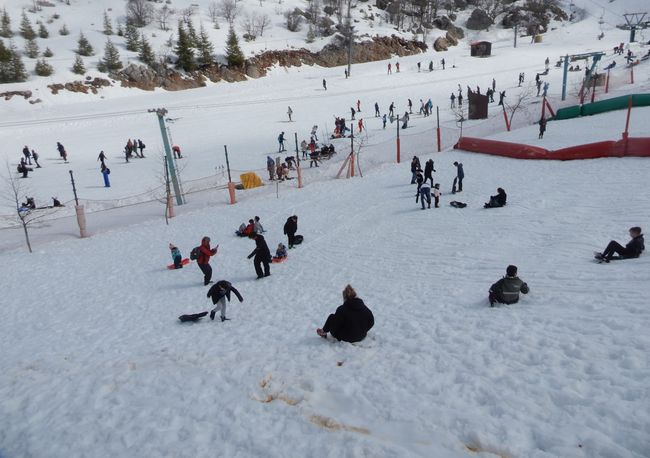
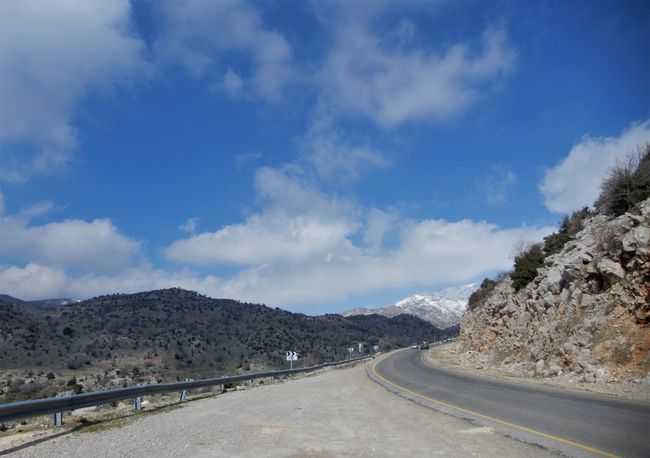
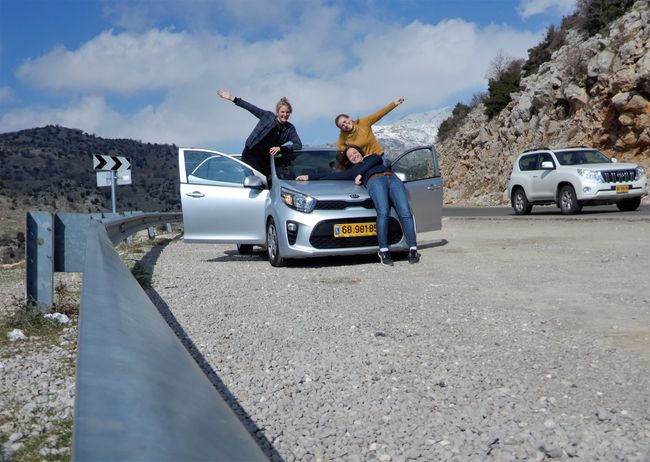
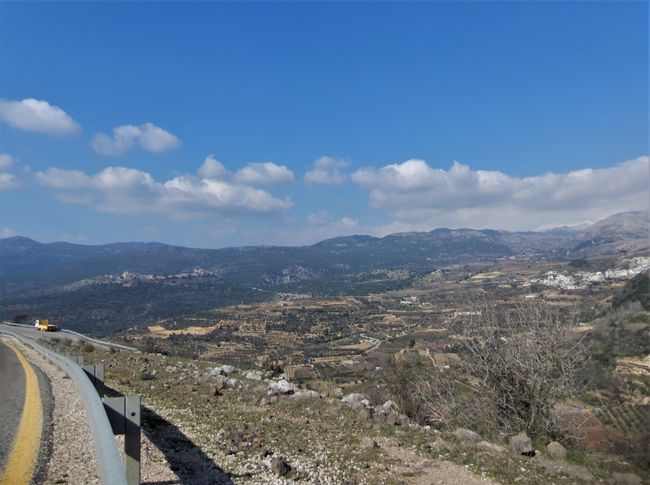
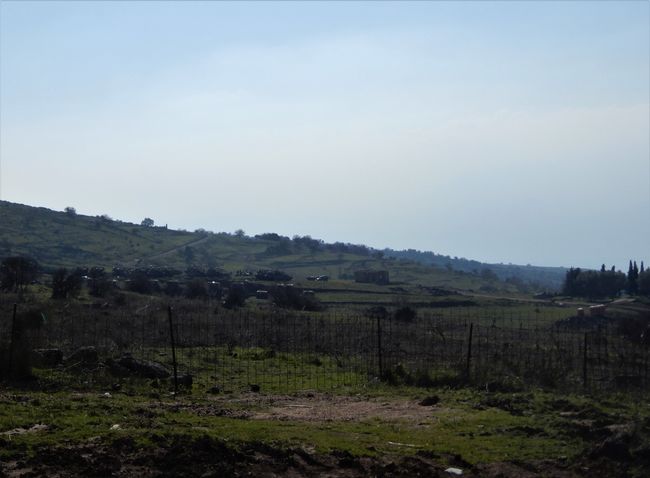
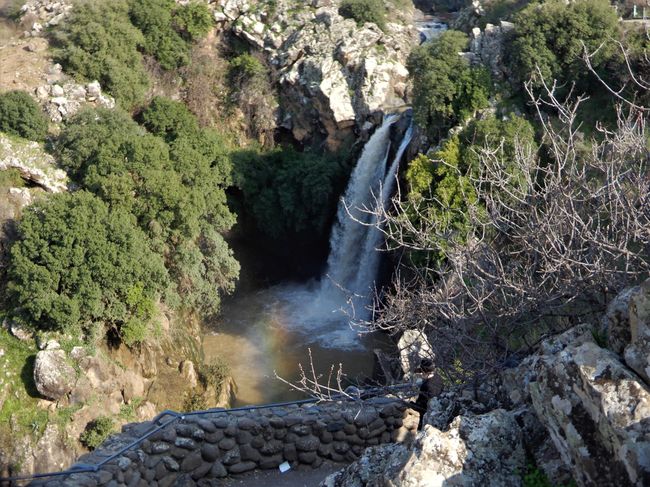
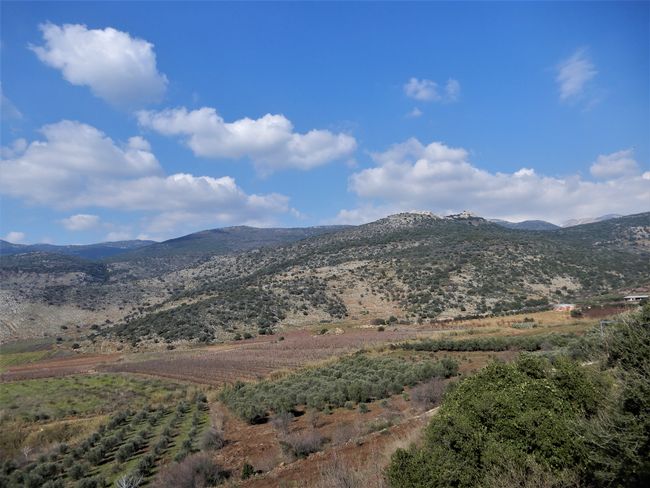
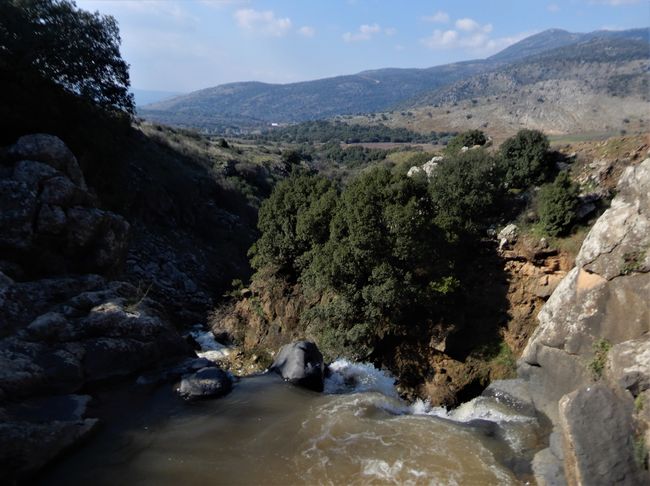
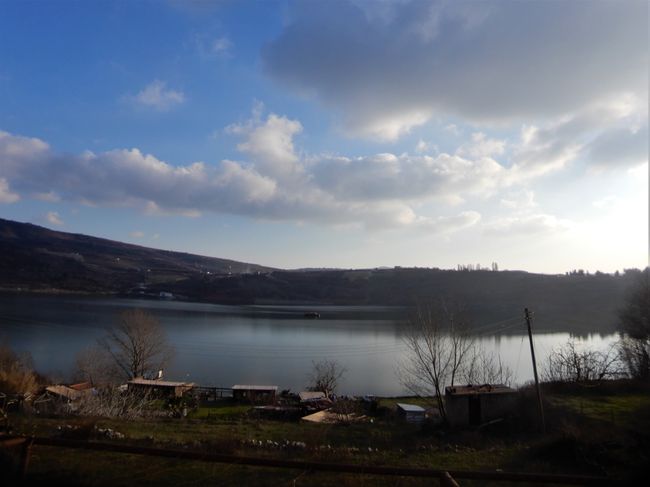
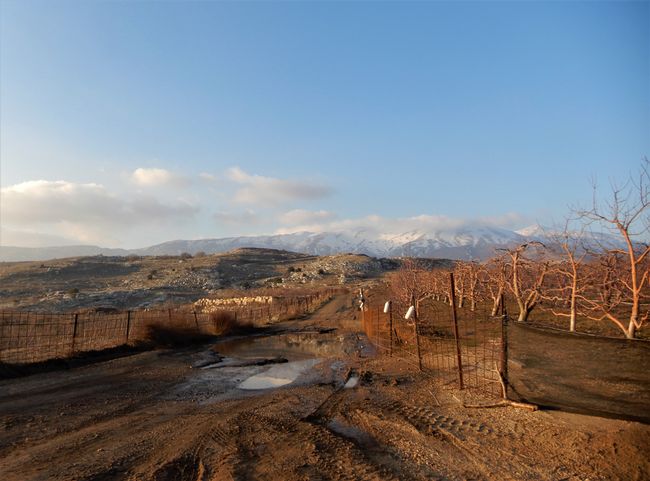
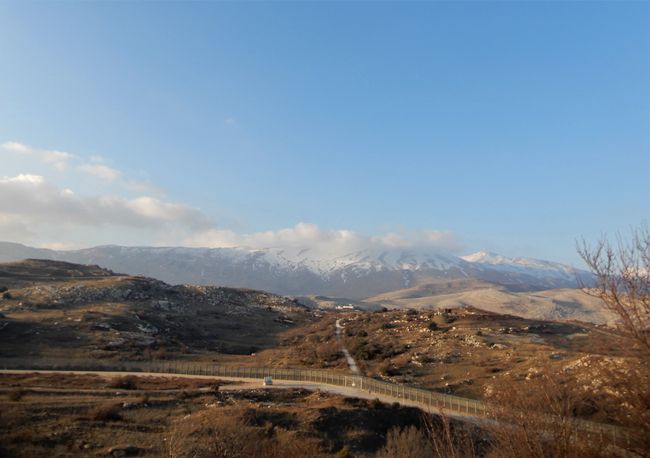
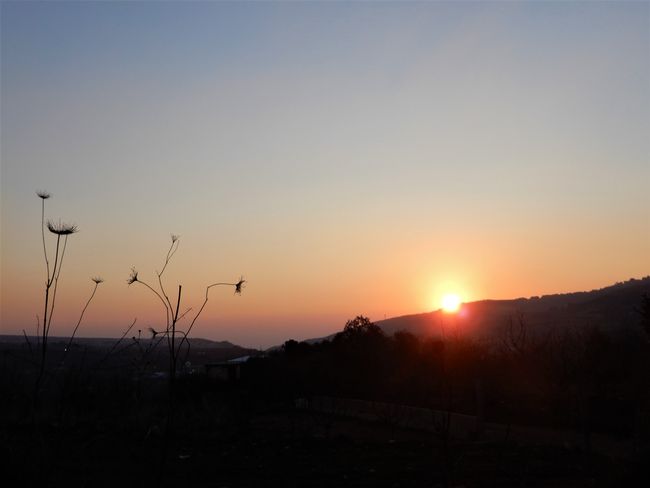
Monday, February 18th
9 am. We take a look out the large window of our apartment and enjoy a beautiful view of Majdal Shams, which is now bathed in the morning sun. When I come out of the shower, I hear familiar sounds from last night. The girls found Busher's band on Spotify, Hawa Dafi, and now we get ready and set off in our car to explore the area a bit. Our first destination, Mount Hermon.
In Wikipedia, Mount Hermon is described as "the highest mountain in Syria". However, the highest point is in Israeli-controlled territory in the Golan Heights, where we are heading now. From Majdal Shams, we can already see the snowy peak from afar under a blue sky. We drive through a mountainous landscape, getting closer to Mount Hermon until we are stopped at a checkpoint. With a fee of 34 shekels per person, we are allowed to continue.
... but only to a large parking lot. We are a bit confused as we wanted to reach the summit. However, two young men in safety vests direct us to a parking space. We try our luck and ask them if we can drive further up, and they point to a bus that would take us closer to the summit. So, we can't drive with our own car?, Lea asks again. Our guide, who apparently does not speak much English, just looks at us confused. But then his colleague comes to his aid. "It's very simple," he says. "Just get in the bus, go up, get out. That's it." He turns to the next car. Alright then. Sounds doable.
We follow his instructions and find ourselves at the foot of the small ski resort about 10 minutes later. We then realize that taking the cable car all the way to the top would cost extra, so we decide against it - we don't have any ski equipment anyway. But even from down here, there is plenty to see. So, we sit on some rocks next to the toboggan run, unpack bread and hummus, and have breakfast in the sun with the snow cinema in front of us.
There is a lot to see besides people standing on skis wearing t-shirts and skirts and children speeding down the toboggan run with cleaning gloves. Among them is a man in completely white ski gear with a white machine gun, moving through the crowd on skis. Busher will later tell us that he is a soldier on duty. They "train" here in case of war breaking out in a snow-covered area. Judging by his skiing skills, I am sure that he would not fare well in an extreme case. It is definitely a sight that leaves me unsure whether to laugh or cry.
At some point, we tear our eyes away from the funny ski slope and continue our way down from Mount Hermon to explore the Golan Heights a bit more. Our next scheduled stop is a waterfall, which we reach by driving down idyllic serpentine roads through grassy hills. The idyll lasts until we apparently pass some kind of military camp. On a green hill, there is a row of tanks, all with their gun barrels pointing in the same direction. The sight is so bizarre that it feels more like a film set than reality. Why?, I keep asking myself. Why.
After a relaxed stay at a small waterfall, we drive to Nimrod's Fortress, a medieval fortress from the 13th century. However, it is already closed when we arrive. The classic. So, we simply continue to explore the area with our car and later get stuck at another viewpoint. Our little car refuses to start again. After trying for about fifteen minutes, we give up. Unfortunately, we don't even have a working SIM card here that we could use to call customer service. So, I decide to ask the bus driver, who has been parked behind us in his empty coach for a while. I knock on his door, explain the situation to him, and ask if we could use his phone to call customer service. "No time. I have to leave," he replies before closing the door and driving away.
I am somewhat perplexed. After all the helpfulness we have experienced on our journey, this is an extreme example from the opposite direction. Fortunately, there are still some other people on our parking lot who turn out to be helpful, and shortly after, we can continue driving. In the end, every experience is worth experiencing.
As the sun sets, we find ourselves in our tin can, driving off-road straight towards the secure fence that separates the Israeli -occupied area of the Golan Heights from Syrian territory. It is a really strange feeling to know that behind the seemingly feeble fence, Syria is located within sight. On the rough road we drive on, yellow signs warning of landmines hang to the left and right. In this otherwise perfect idyll, it is really hard to grasp the tense area in which we find ourselves.
Erantzun
